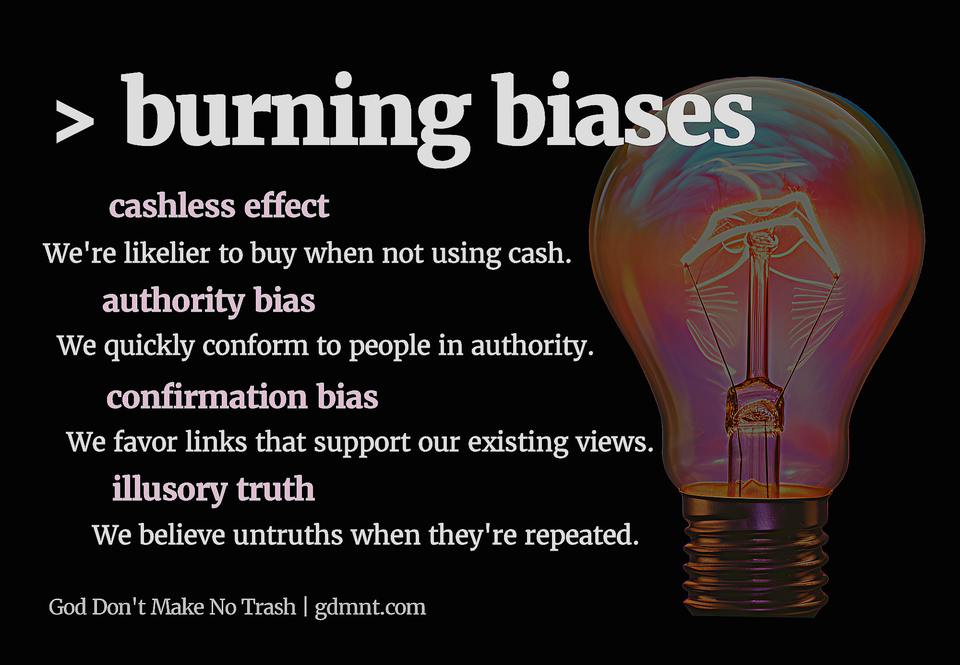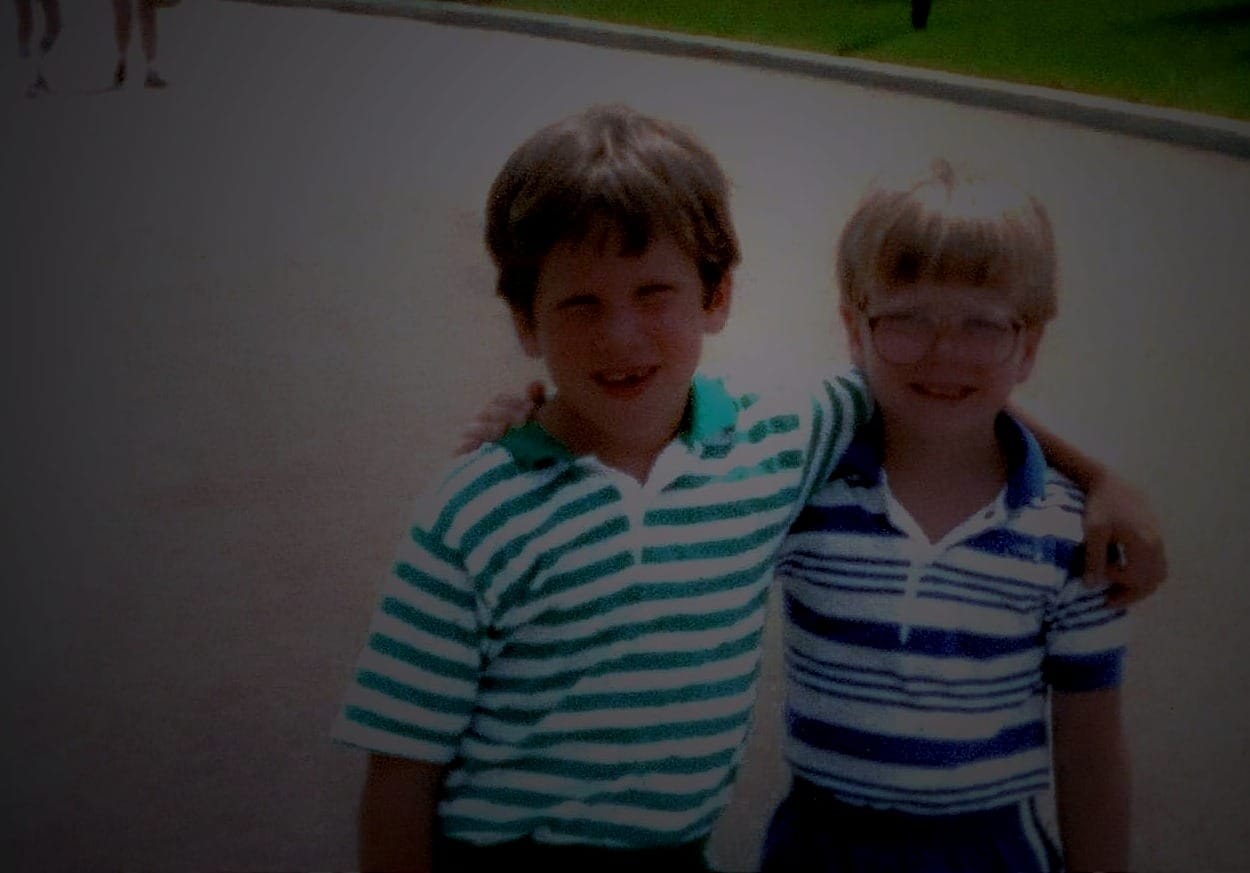Biases are real 🍒
We're wired for mistakes

> intro to psych | biases and errors
Here are examples of cognitive biases and errors uncovered by scientists that can lead to decisions we regret. —G.W. Schulz
- cashless effect | We’re likelier to follow through with a purchase when not using physical cash.
- authority bias | We quickly conform to and accept the opinions of people in positions of authority often without critical evaluation.
- bandwagon effect | We mimic and adopt certain behaviors and beliefs to feel included. We want to feel part of what feels popular.
- paradox of choice | More choice is not necessarily better when we're buying. A menu too busy with options will cause us to ruminate over whether we made the right choice. 🔄
- cognitive dissonance | We ignore or explain away conflicting information when faced with tough decisions.
- illusory truth effect | Human beings are likelier to believe false information if we hear it repeated it over and over. This can happen even if we initially know it's false.
🔳
Bargh, John A. "How Unconscious Thought and Perception Affect Our Every Waking Moment." Scientific American, January 1, 2014. ln.run/Xn7SI
- commitment bias | If we've publicly taken a strong position on something in the past, it becomes difficult to change even when it's better for us.
- confirmation bias | We cherry-pick evidence from the world around us to support beliefs we already hold. We don't like considering new ideas.
- framing effect | How options are presented to us affects how we make decisions. Labeling a product as 90% fat-free is more effective than labeling it 10% fat.
- priming effect | What we hear, watch, and see can prime us to make decisions and behave in certain ways. This is a familiar exploit used by political campaigns.
- next time Chapter end
- listening Pink Fuzz "Enough"
– 30 –
>> full series | alerts | playlist / social | tip jar

